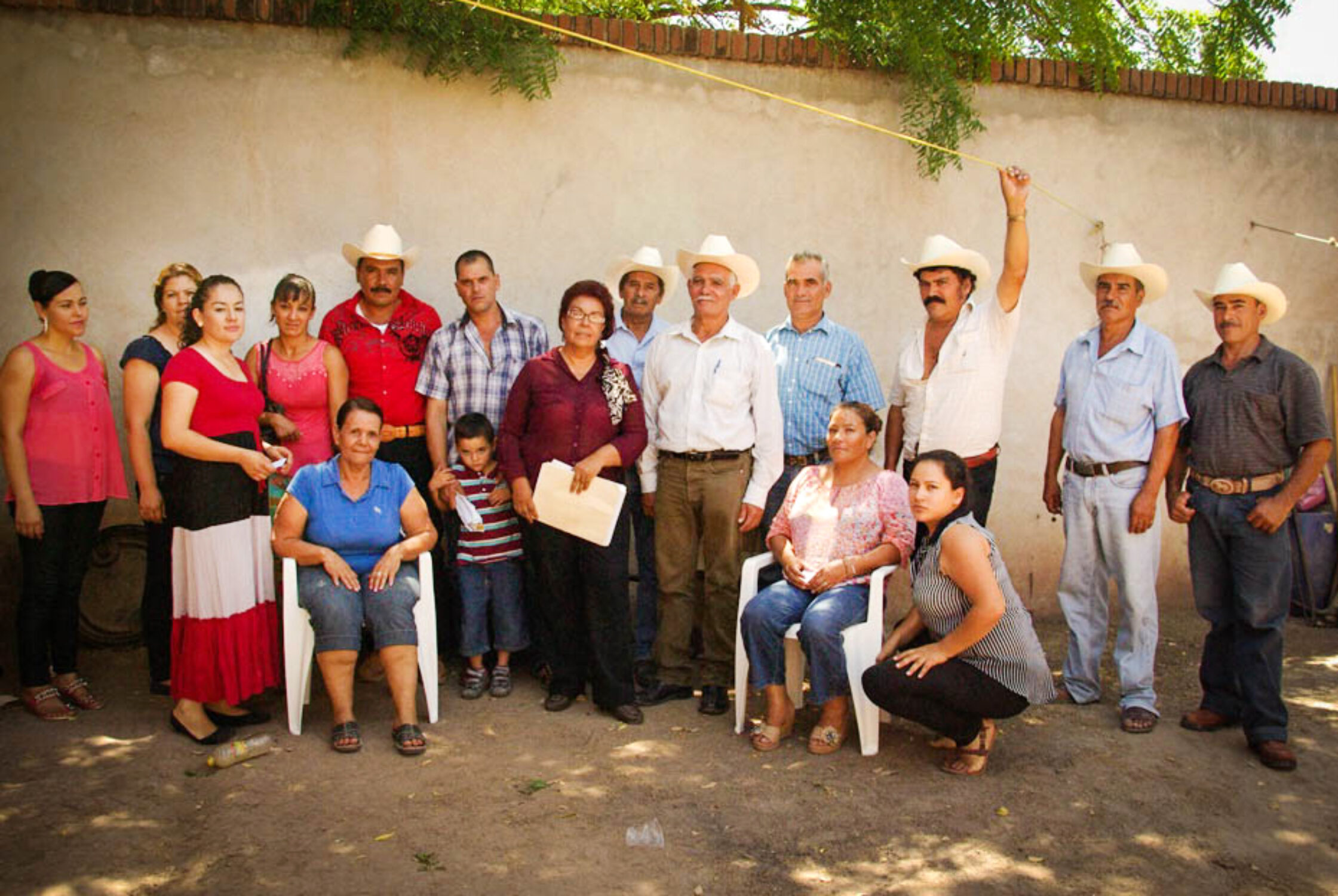Mexico’s Unseen Victims

Mexico is in the midst of a hidden humanitarian crisis. Entire rural communities have been viciously emptied by violent drug cartels looking to appropriate their land and natural resources. Residents have fled cities and states where the Mexican military is heavily engaged in armed conflict against organized criminal groups. As a result of targeted assassinations, kidnappings, and extortion, Mexican families have been forced to escape by abandoning their homes and livelihoods.
Hundreds of thousands of Mexicans are internally displaced and in desperate need of documentation, shelter, livelihoods, and psychosocial support. Their existence must be acknowledged by the Mexican government, and a comprehensive humanitarian strategy to promote and protect their rights must be put into effect.


RI met with more than twenty families who had fled their ranches in Sinaloa’s Sierra Madre mountain range between January and May 2012. At that time two of Mexico’s biggest criminal organizations, the Sinaloa Cartel and the Beltran Leyva Organization, were engaged in a fierce battle for control of the mountain range. During the months-long siege, the families reported that people and cattle were killed, houses were robbed or burned down, and entire extended families were run off their land. All reported being given a choice: work for the cartel, leave now, or die.
Background
Mexico is an upper-middle income nation in a period of economic and social transition. Among other initiatives, increased taxes on the wealthy and the passage of a 2013 Victim’s Law both have the potential to reposition Mexico in terms of its ability to engage with the international community and better fulfill the rights of its citizens. Continuing to run in parallel, however, is the presence and power of organized criminal groups1 despite extensive efforts by successive governments to eradicate them.
While the Government of Mexico has successfully arrested or killed the leadership of some of the nation’s most dangerous criminal groups, it does not have a contingency plan for those forcibly displaced by these same groups, nor for the inevitable uptick in violence that occurs when leaders are killed and second-string operatives battle to assume control. Kidnappings, extortion, theft, and other crimes have increased alongside the dismantling or disruption of organized criminal groups.
Through meetings with dozens of IDPs, government officials, civil society organizations, academics, and journalists, a common profile of those displaced emerged. Almost all had directly experienced extreme violence before flight, through the assassination, kidnapping, or disappearance of at least one family member, and oftentimes more. And all had experienced an acute reduction in their economic status, an inability to secure regular employment in displacement, and a loss of land, property, and housing without any financial remuneration.
The primary responsibility to protect and assist IDPs lies with the Mexican government. This responsibility includes preventing situations that lead to internal displacement, ensuring that an appropriate legal framework and national policy are in place, mitigating the adverse effects of displacement when it occurs, and ensuring durable solutions are identified for those displaced. Where the Mexican government does not have the expertise and/or experience to ensure an effective and coordinated response to internal displacement, the international community has the obligation to reinforce Mexico’s efforts toward a multidimensional humanitarian, human rights, development, political and security response.

Our Recommendations
The Mexican government should:
- Develop a definition of internal displacement that is consistent with the Guiding Principles and incorporated into all government institutions working with the population;
- Conduct a nationwide survey and needs assessment of those internally displaced due to organized criminal groups;
- Add specific questions to the 2015 population count and the 2020 census on underlying reasons for movement;
- Appoint a lead and institutional focal point within the Ministry of Interior and establish an interdepartmental working group for coordinating responses to internal displacement that includes relevant municipal and state offices;
- Fully fund the 2013 Victim’s Law annually and create a specific committee within the Executive Commission for Attention to Victims and an account for IDPs to assist them in securing safe shelter, a sustainable livelihood, compensation for or restoration of lost land, property or housing, and access to justice;
- Build on improvements to civil and birth registration at the national level and provide legal documentation to those internally displaced that can be used to access education, work, shelter, and municipal and state services; and
- Train community-based, municipal, state, and federal police and military personnel on how to identify and protect the rights of IDPs.
- The U.S. government should provide Mexicans who express a fear of return with an individual hearing before an asylum officer, and extend protection to those individuals who demonstrate a well-founded fear of persecution on account of a protected ground or a likelihood of torture.
- In accordance with its global IDP policy, the UN Refugee Agency should encourage the Mexican government to take more robust action on internal displacement, and offer technical and financial support to strengthen the Mexican government’s capacity to respond.
Sarnata Reynolds and Garrett Bradford traveled to the Mexican states of Aguascalientes, Baja California, Sinaloa, and Veracruz as well as Mexico City to assess the humanitarian needs of Mexicans displaced by organized criminal groups in May and June 2014.